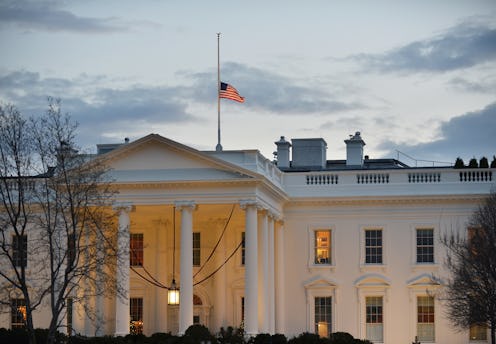As pundits and voters alike begin to predict the outcome of the 2016 presidential election, the controversial nature of the United States' presidential election system has again come into focus. In the United States, presidents are elected via indirect election, meaning that voters do not directly elect presidential candidates through the popular vote. Instead, the public elects representatives, or electors, who then directly vote for the president. This type of voting is made possibly by a system called the Electoral College.
The Electoral College is a uniquely American institution. The College is comprised of 538 electors representing all 50 states plus Washington, D.C.; these electors cast the "actual" votes for President. The number of electors a state receives is determined by the number of Congress members a state has collectively in the House and Senate. For a candidate to be elected President of the United States, they have to receive a majority of the Electoral College votes, which is 270 or more.
Generally-speaking, electors in each state are expected to vote for their party's nominee, though that doesn't always happen. The candidate who wins the plurality of votes in a state gains all of the electors from that state due to the Electoral College's winner-takes-all rule. An exception to this rule exists in Nebraska and Maine, where electorate votes can be split according to congressional district. In other words, Trump might win one district in Maine and Clinton could win another.
The Electoral College and indirect voting have defined the American presidential system since its inception. The Founding Fathers initially established the Electoral College as a compromise between having Congress elect the President and having citizens directly elect the President by popular vote.
While the Electoral College is uniquely American, the concept of an indirect election for a head of government is not. For example, in parliamentary systems, which comprise much of Europe, Prime Ministers are typically elected indirectly—voters elect Parliamentarians who then directly elect the Prime Minister.
Though indirect elections have existed for hundreds of years, they are not without controversy. A number of Americans believe the Electoral College and the indirect presidential election should be abolished in favor of direct democracy, where one voter represents one vote and the winner of the presidency is the winner of the popular vote. Controversy around the Electoral College was especially prevalent following the 2000 presidential election, when George W. Bush won the Electoral College and presidency without winning the popular vote, which constitutes the fourth time this has happened in U.S. history.
While some people may oppose the Electoral College, the fact remains that it has been a part of our country's electoral process since its founding. Though the Electoral College may make some voters feel distant from the U.S. presidential election process due to its indirect nature, it is still incredibly important to vote, because your vote absolutely matters, even in an indirect election.
